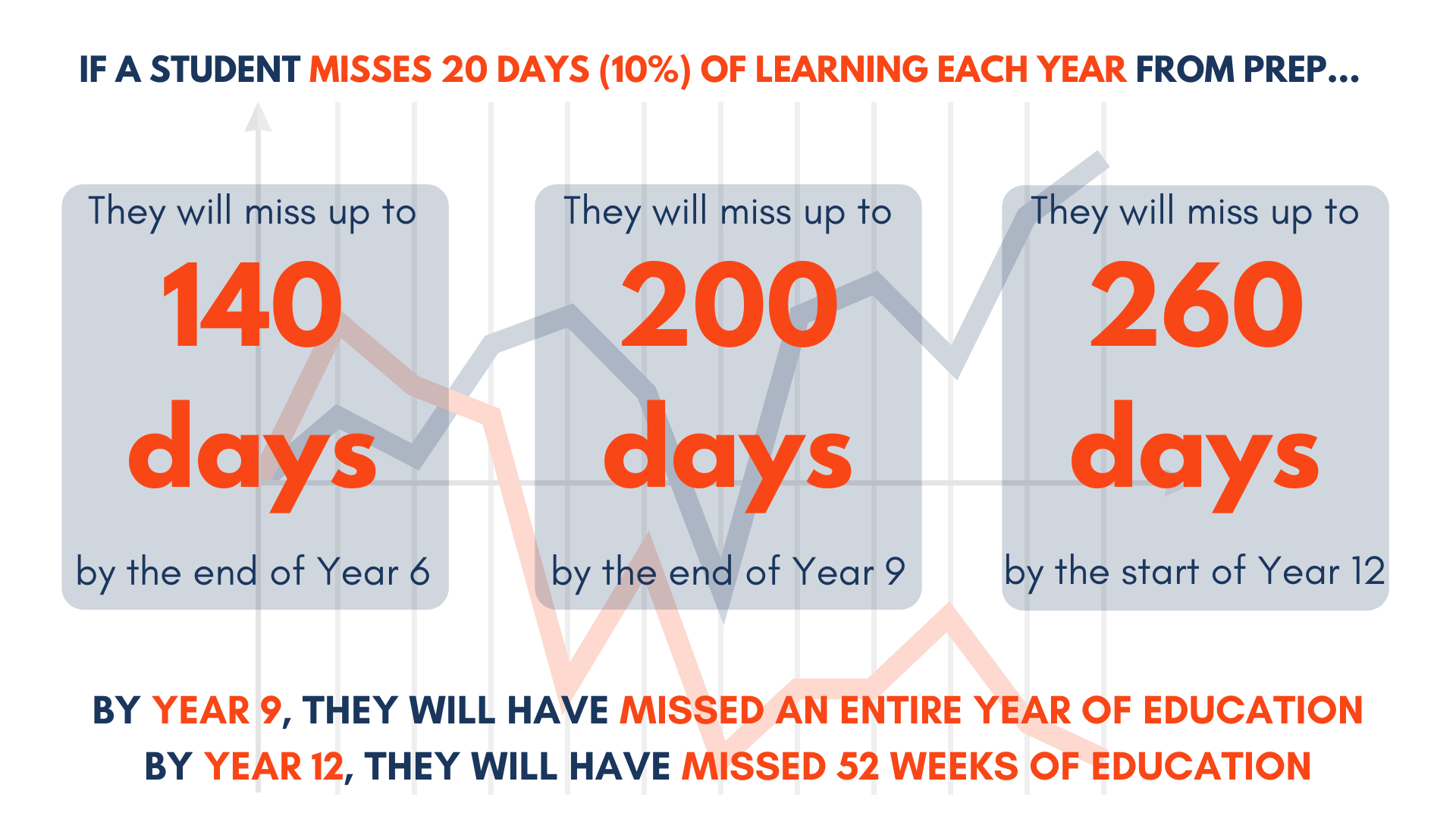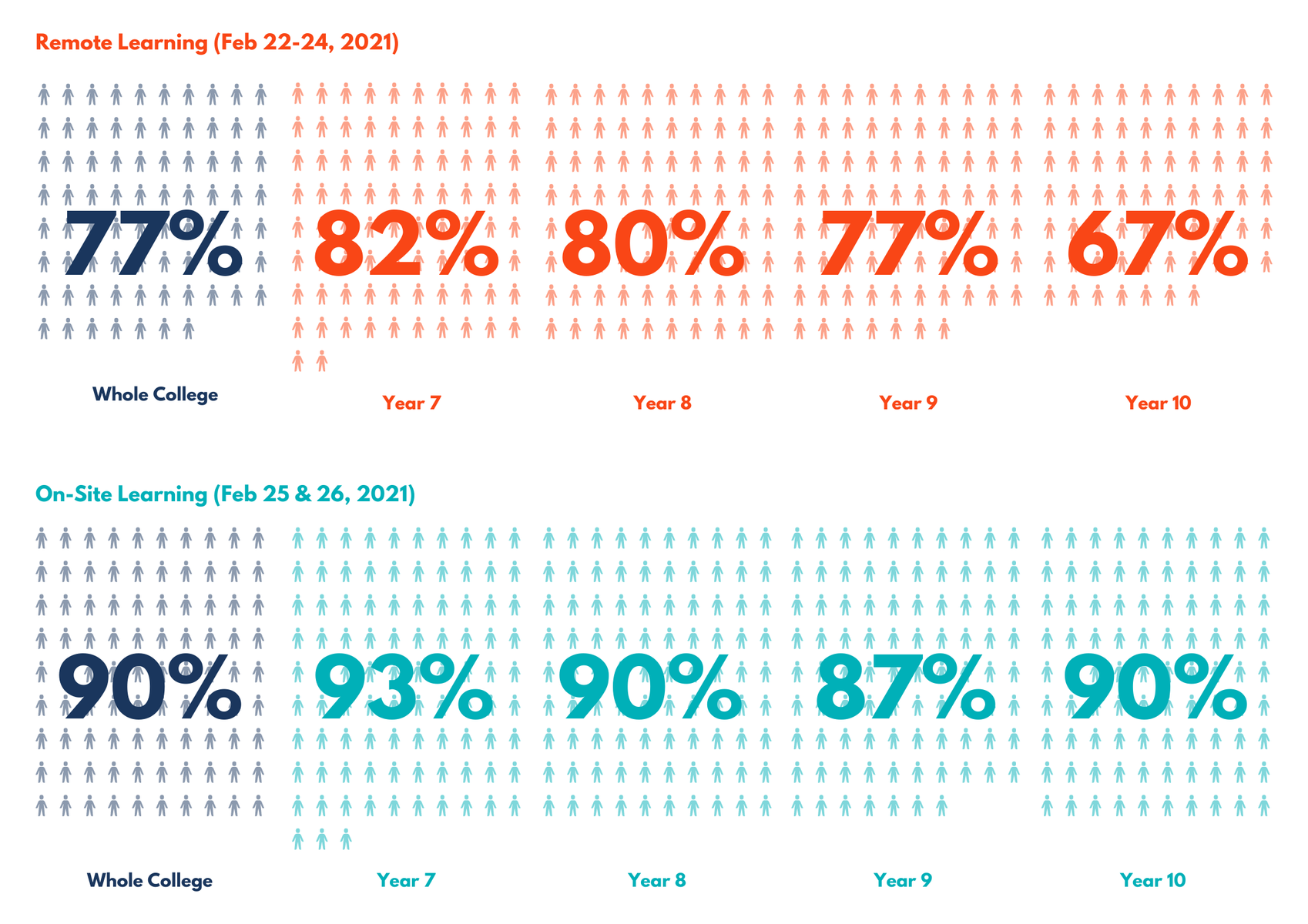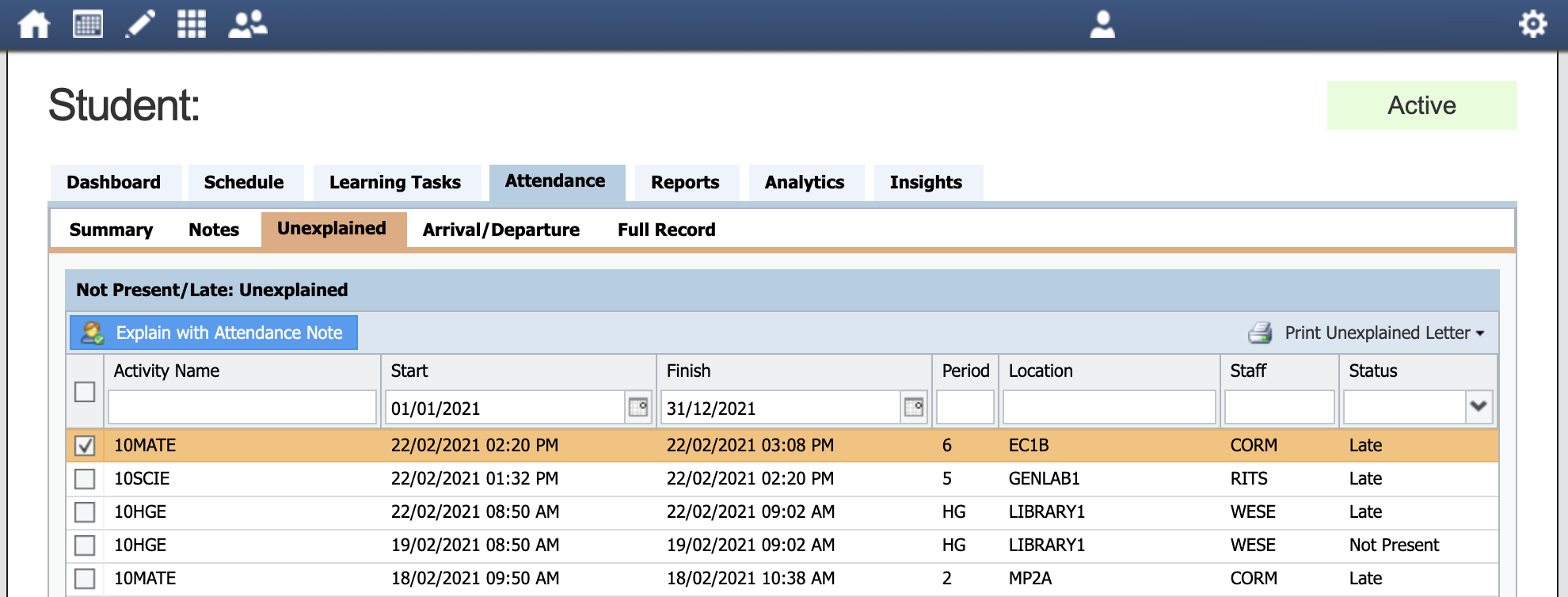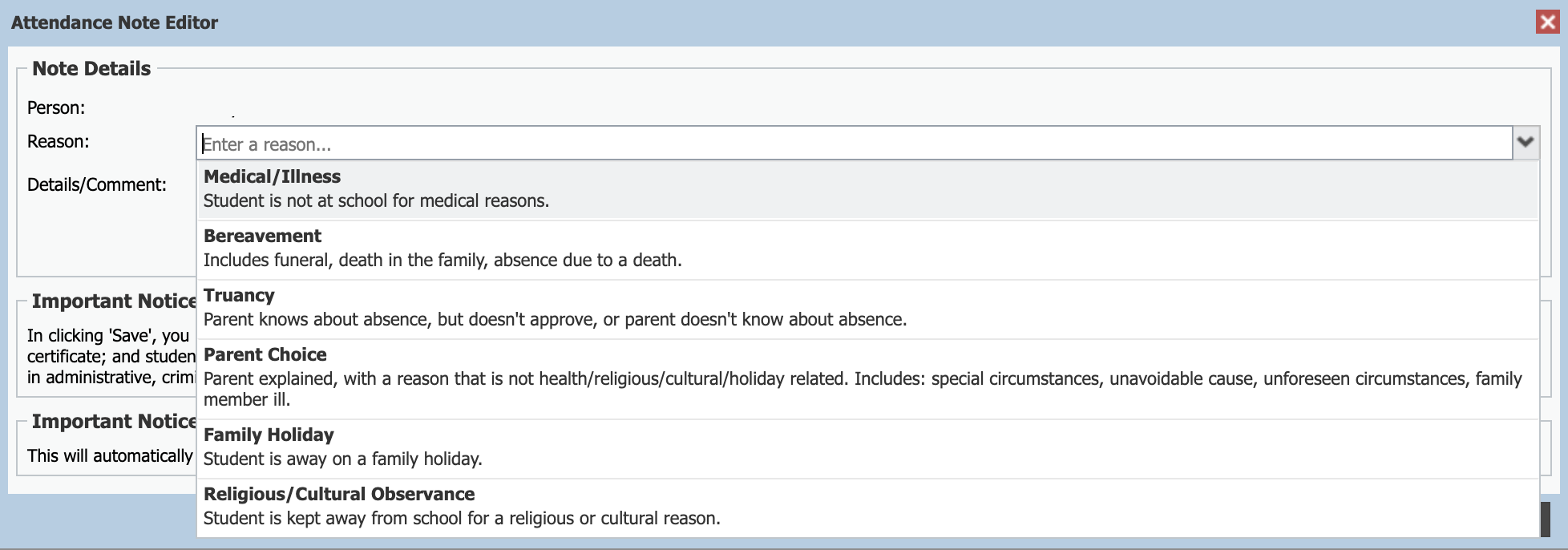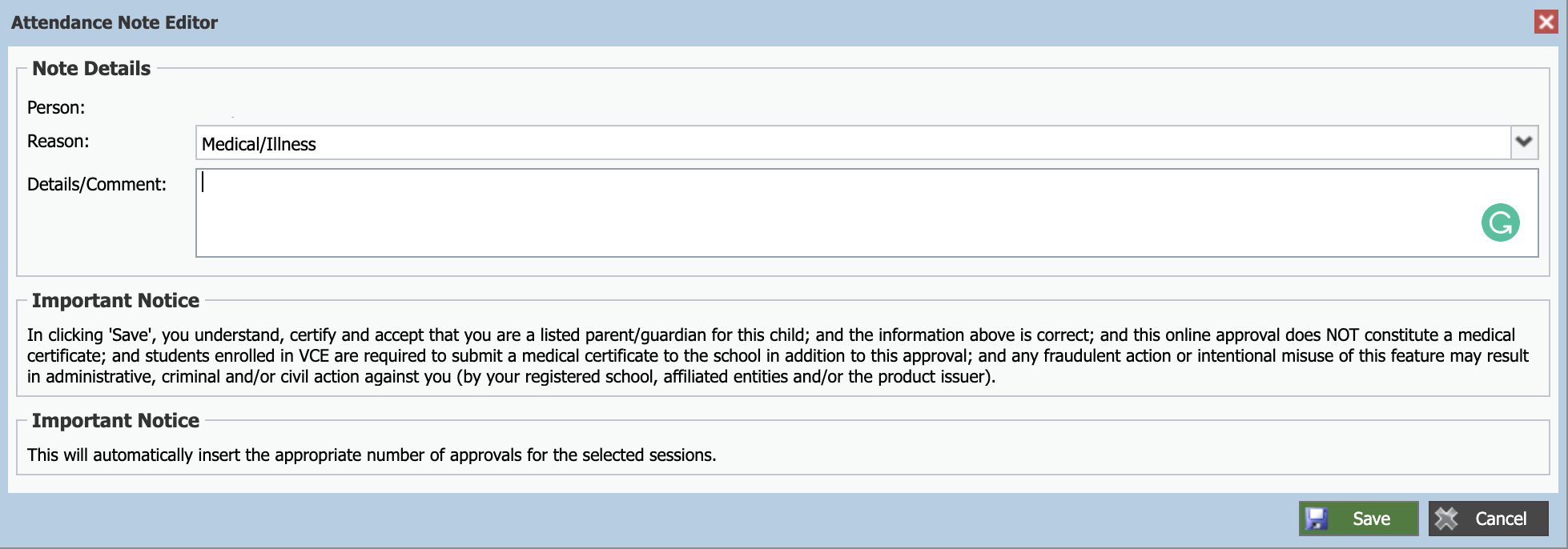Attendance & Data Update

Edgars Creek Secondary College prides itself on not only the collection of meaningful, accurate and up-to-date data on a range of aspects, such as attendance and learning growth but also the use of this data to support students in their learning and their general wellbeing.
How We Collect and Use Data
Generally, our data is collected and stored on Compass as a central point of all teaching staff to monitor student progress and wellbeing needs.
Data is collected from attendance and scores uploaded on Compass, with standardised, annual assessments such as Progressive Achievement Tests (PAT) in Reading and Maths as well as OnDemand assessments used to complement teacher judgements and common assessment task (CAT) results.
We use the data collected to create school-wide, cohort-wide and class-level goals as well as specific, targeted and individualised goals for each of our students, both in terms of academic progress as well as in wellbeing support.
The data collected is also used to support teachers as they reflect on the effectiveness of learning programs as well as their own teaching practice.
Improving Attendance at Edgars Creek SC
A major goal at Edgars Creek Secondary College is to improve attendance across all cohorts. According to the Australian Institute for Teaching and School Leadership, the average attendance rate across Australian schools sits at a healthy 92%.
As of the end of Term 1, Week 5, the average attendance at Edgars Creek SC sits at 86.91%, some five per cent below the national average. However, an encouraging sign is that attendance across each cohort is already around two per cent better than at this time last year; a trend we hope to build on in the coming weeks and months.
Why does attendance matter so much? The Australian Insitute for Teaching and School Leadership (AITSL), in its report Spotlight: Attendance Matters, noted that:
Irrespective of the reasons for absences, non-attendance affects student outcomes.
The Victorian Department of Education (DET) also stressed the need for consistent school attendance, stating that:
Daily school attendance is important for all children and young people to succeed in education and to ensure they don't fall behind both socially and developmentally. Children and young people who regularly attend school and complete Year 12 or an equivalent qualification have better health outcomes, better employment outcomes, and higher incomes across their lives. It is important that children develop habits of regular attendance at an early age.
School participation is important as it maximises life opportunities for children and young people by providing them with education and support networks. School helps people to develop important skills, knowledge and values which set them up for further learning and participation in their community.
The Telethon Kids Institute conducted a study in Western Australian schools to determine a potential minimum threshold for attendance - the minimum number of days that a student could 'get away with' being absent before it affected their learning:
Our researchers wanted to know how many days of absence kids could 'get away with' before it started to affect how they were doing at school. The answer was none.
Additionally, they discovered that
The effect of missing days accumulated over time, so that school absence not only impacted achievement in the year in which the days were missed but in future years as well.
It sounds obvious but put simply: missing school is missing learning.
Senior School Attendance: Year 10
As part of the requirements for achieving the Victorian Certificate of Education (VCE), students need to record a minimum attendance of 90%. In the average school year, there are 200 days, meaning students would have to miss up to 20 days of school to fall under the 90% minimum.
With our Year 10s less than 10 months away from potential VCE studies, it is concerning to see our Year 10 average attendance at only 83.66% - well below the 90% minimum attendance required to pass units at Years 11 and 12. However, as attendance data collected during the return to on-site learning at the end of Term 1, Week 4 demonstrates, our Year 10 students are more than capable of reaching - and even exceeding - that 90% minimum attendance rate.
10% may not sound like much - but it does make a difference.
The Effects of Remote Learning 3.0
For a moment there, it certainly did seem like we had all gone back to September 2020, with the recent snap Stage 4 lockdown and return - albeit briefly - to remote learning. This certainly had an impact on student engagement and attendance.
The graphic below demonstrates the difference between attendance online during the brief three-day remote learning period and the two days of on-site learning.
Explaining Your Child's Absence on Compass
In most cases, absences are unavoidable and easily explained. This is especially true in recent times, with people that are unwell encouraged to stay home and get testing for COVID-19 when symptoms present.
It is therefore vital that you explain your child's absence on Compass as this contributes to school-wide attendance data, which is then communicated with the Department of Education and Training (DET).
While you can pre-explain an upcoming attendance (e.g. for an appointment, or if you know they are going to stay home due to illness), whenever your child has unexplained absences, these will appear on your Compass dashboard.
The following notification will appear:
By clicking on 'Click here for more information', the following dialogue boxes will appear so that you can easily record reasons for your child's absence. The 'Reason' dropdown box shows you an example of just some of the reasons you can use to explain a child's absence (including family holidays or religious/cultural observances). This helps the College in understanding the nature of absences and targetting resources where they are needed to support students in their ongoing attendance.
Alternatively, you can contact the College directly on (03) 9134 8200 and let one of our friendly office staff know about your child's absence.
Anthony Asta
Leading Teacher - Timetabling & Data


